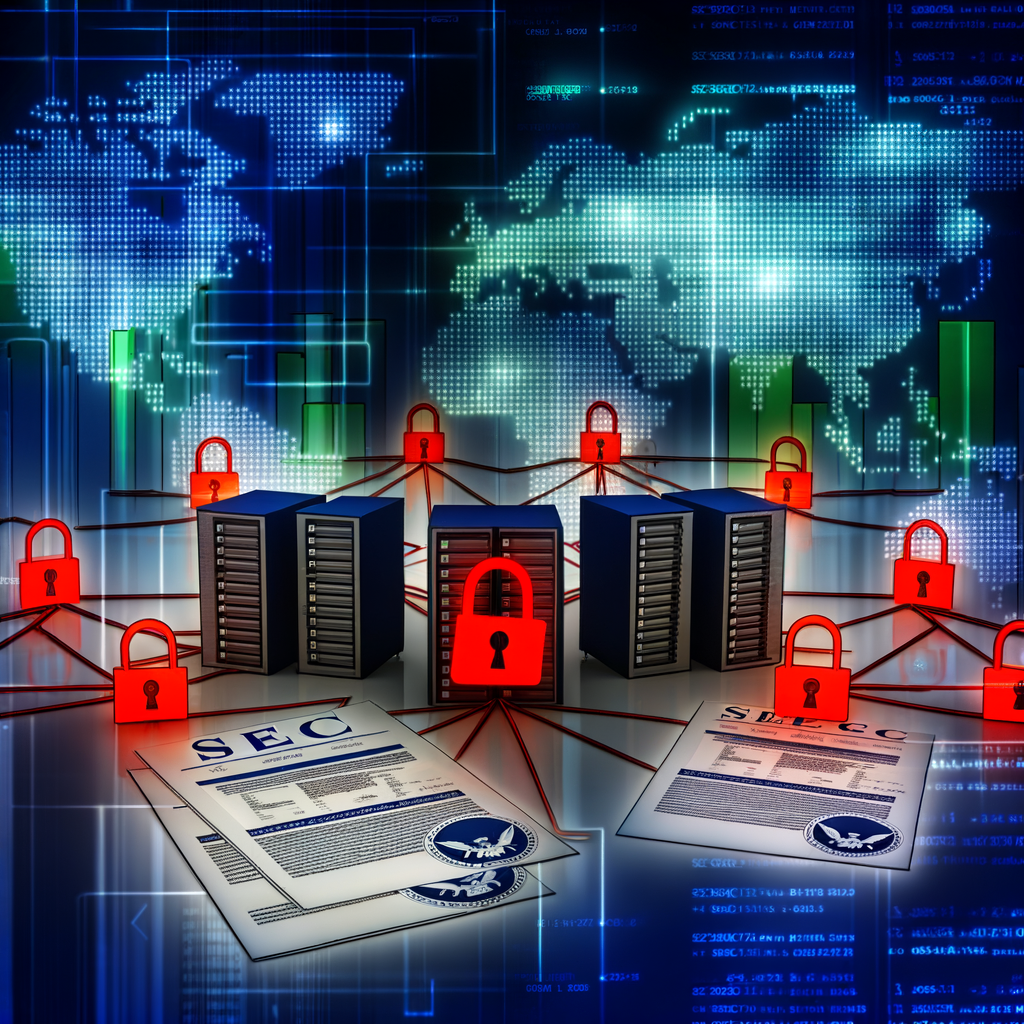“`html
Judge Rejects SEC Oversight in SolarWinds Cybersecurity Controls Case
The landscape of cybersecurity governance and corporate oversight witnessed a seismic shift recently, as a judge ruled against the Securities and Exchange Commission (SEC) in a highly-publicized case involving the software company, SolarWinds. The case, which has captivated the attention of technology and financial market stakeholders, revolves around the SEC’s attempts to impose stringent cybersecurity controls on SolarWinds following the infamous hack. In this blog post, we delve into the intricacies of the ruling, the implications for businesses, and the future of cybersecurity regulations.
Background of the SolarWinds Hack
SolarWinds, a leading provider of IT infrastructure management software, became a household name for all the wrong reasons in December 2020. The company experienced a colossal cybersecurity breach, now infamously referred to as the SolarWinds hack. This breach impacted various U.S. government agencies, including the Departments of Justice and Defense, as well as numerous corporations across the globe.
The Impact of the Hack
The SolarWinds hack not only resulted in significant financial losses but also raised alarms about the potential ramifications for national security and corporate intellectual property. The attack leveraged vulnerabilities in SolarWinds’ Orion software platform, allowing hackers to infiltrate and monitor the systems of over 18,000 customers for months undetected.
This alarming incident prompted the SEC to intensify its scrutiny of SolarWinds’ cybersecurity protocols and demand stricter controls to prevent future attacks of such magnitude.
The SEC’s Case and Demands
In the aftermath of the breach, the SEC took a strong stance against SolarWinds, arguing that the company’s cybersecurity measures were grossly inadequate. Their demands included:
- Enhanced oversight on the company’s cybersecurity practices.
- Implementation of stringent controls and regular audits.
- Disclosure of comprehensive cybersecurity reports to stakeholders.
The SEC’s stance was grounded in the notion that public companies must adopt robust cybersecurity frameworks to protect investors and the broader financial ecosystem from the fallout of cyber threats.
The Court’s Ruling
The case took a dramatic turn when a judge ruled against the SEC’s oversight demands. The court’s decision rested on several key points:
- SolarWinds’ proactive measures post-breach were deemed sufficient.
- The SEC’s demands were considered overly burdensome and beyond its regulatory scope.
- The need for a clear delineation between government regulations and corporate autonomy.
This ruling has far-reaching implications not only for SolarWinds but also for the broader landscape of corporate cybersecurity governance.
Implications for Businesses
The judge’s decision to reject SEC oversight sets a significant precedent for other corporations. Here are some of the potential implications:
1. Corporate Autonomy
Businesses may now feel emboldened to resist overly stringent regulatory demands, thereby retaining greater control over their internal cybersecurity measures. This autonomy can empower companies to tailor their cybersecurity protocols to their specific needs and threats.
2. Risk Management
While retaining autonomy is advantageous, it also places greater responsibility on corporations to implement effective cybersecurity measures. Failure to do so could result in severe financial and reputational consequences in the event of a breach.
3. Market Reactions
Investors and stakeholders may react to this ruling in various ways. Some may view it as a positive step towards minimizing regulatory overreach, while others may see it as a potential risk to their investments. The debate on balancing corporate freedom and investor protection is likely to intensify.
Future of Cybersecurity Regulations
This ruling also raises pertinent questions about the future of cybersecurity regulations:
1. Role of Government Agencies
Government agencies may need to rethink their approach to cybersecurity oversight. Collaborative efforts between businesses and regulators will be crucial in establishing balanced and effective cybersecurity frameworks.
2. Industry Standards
The onus is now on the industry to develop and adhere to high standards of cybersecurity. Industry associations and technology coalitions should work towards setting comprehensive guidelines to ensure robust cybersecurity practices across the board.
3. Evolving Threat Landscape
As cyber threats evolve in complexity and sophistication, it is imperative for both regulators and businesses to stay ahead of potential vulnerabilities. Continuous innovation, regular audits, and adaptive security measures will be vital in safeguarding against cyber attacks.
Conclusion
The judge’s decision to reject SEC oversight in the SolarWinds cybersecurity controls case marks a pivotal moment in the ongoing conversation about corporate cybersecurity governance. While corporations may welcome the increased autonomy, the responsibility to implement effective cybersecurity measures cannot be understated. The evolving threat landscape necessitates a collaborative approach between businesses, regulators, and industry associations to ensure a secure digital future.
As we continue to navigate this dynamic landscape, one thing is clear: cybersecurity is no longer just a technical issue—it’s a critical component of corporate governance and investor protection.
“`



